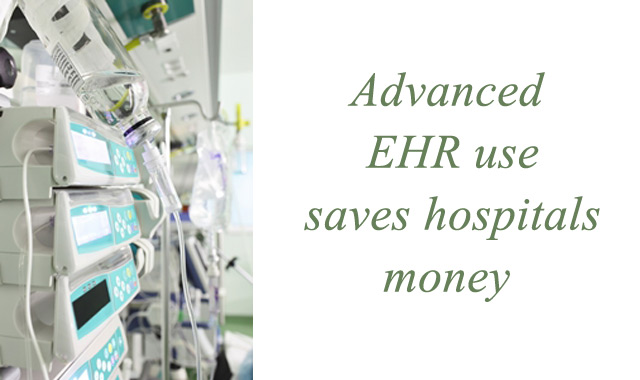Electronic health record systems have taken their fair share of criticism over the past several years. Physicians have attacked the technology for failing to improve patient outcomes and transforming them from doctors into data capture workers. Even as more professionals purchase and adopt the technology, many are still unconvinced that electronic health record systems can deliver on their promise of transforming healthcare.
According to a recent study conducted by researchers at the University of South Carolina and published in the American Journal of Managed Care, hospitals that manage to successfully implement and use electronic health record systems at an advanced level save as much as 10 percent on their per patient admission expenses.
Working through challenges
The USC study investigated the effects of different levels of electronic health record systems usage among 550 hospitals across the U.S. Data was gathered from 5,047,089 patient-physician interactions where the patients were at least 18 years old. The researchers also found that, of the 550 hospitals, only 104 used electronic health record systems at a level that would satisfy the requirements of any stage of meaningful use.
In those high-functioning hospitals, the researchers found that patients cost about $731 fewer to treat than in facilities without a comprehensive health IT policy. This represented a 9.66 percent savings in per-patient admission costs.
“Since [electronic health record] systems are complex and costly to implement, it is often a multistage process to adopt and use [them],” Abby Kazley, Ph.D., associate professor of healthcare management and lead author of the study, said in a statement. “Thus, hospitals must anticipate that the financial savings may not exist until advanced, ‘meaningful’ use is attained. The majority of hospitals have yet to reach the stage of implementation where cost savings are possible, since they are not using advanced [electronic health record systems].”
Kazley was not the only person to urge hospitals and practices to push through the learning process with new software. David Blumenthal, former national coordinator for health information technology, explained to the Atlantic that the industry is still fairly new at health IT, but it is getting better.
“It is an enormously disruptive process within the healthcare system,” Blumenthal told the news source. “It takes time to accommodate.”
No one can say how much time exactly, but only 18 percent of office-based physicians used any type of health IT in 2001, compared to 78 percent in 2013, according to the U.S. Centers for Disease Control and Prevention. As more healthcare professionals adopt the technology, more will see the savings as a result of meaningful use.


















